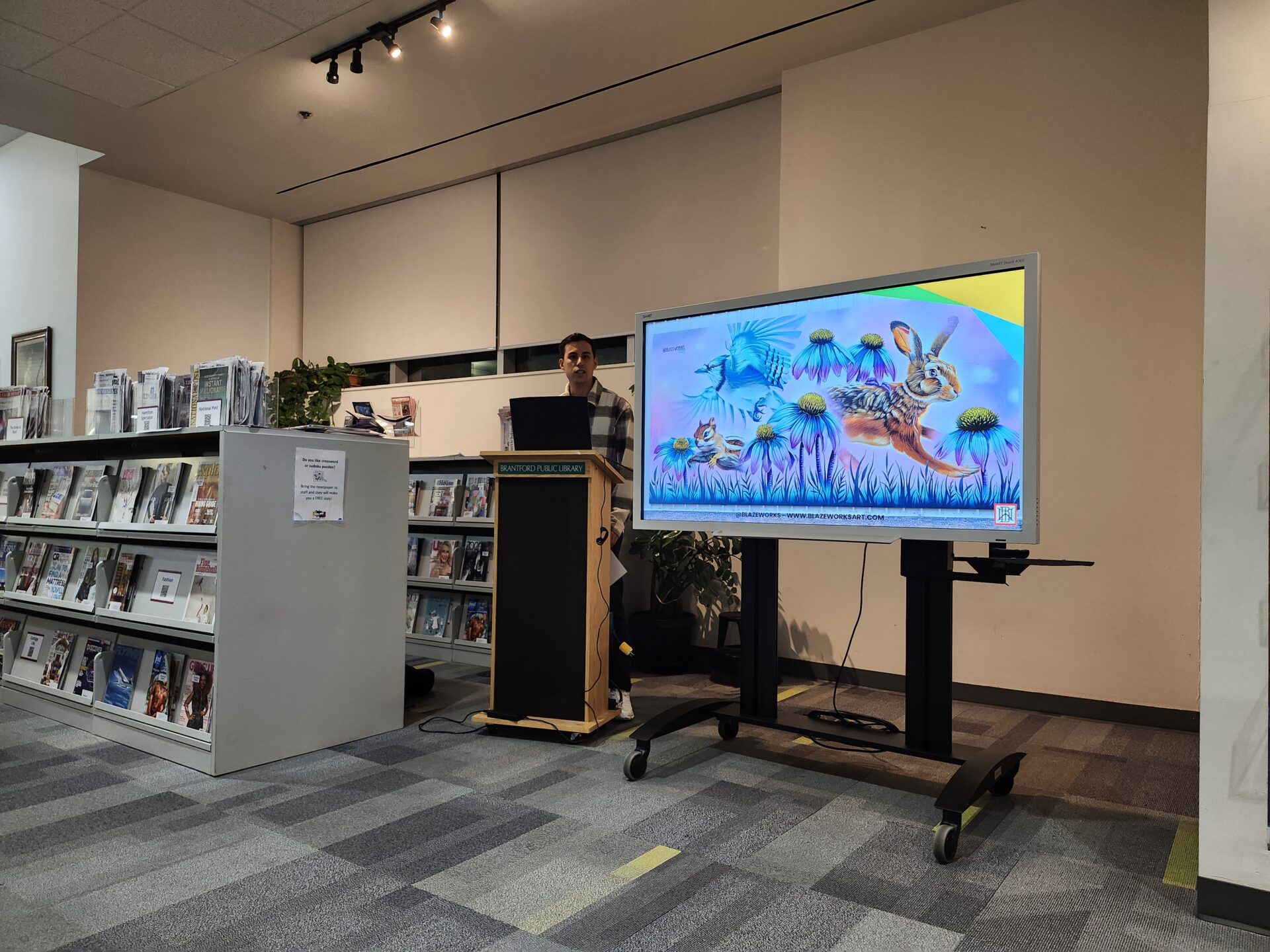Blaze Wiradharma, the artist who created the new library mural The Pages of the Grand, discussed his process of creating the mural and the narrative behind it on Thursday, November 6, 2024.
The evening began outside, viewing the mural with Wiradharma’s guidance. The mural is located on the west wall of the Main Branch of the Brantford Public Library.
Wiradharma said the mural is designed to be viewed from left to right. The mural starts with a cotton-tailed deer, which symbolizes the Indigenous people of the Neutral Nation, known as the Chonnonton or “People of the Deer,” who were the area’s first settlers. As you move to the right, you see more local wildlife including a largemouth bass and a monarch butterfly, lush trees and greenery, and the Grand River flowing throughout the mural. A flint arrowhead, coming up from the lower part of the mural, is representative of the Mohawk Nation.
At the centre of the mural are two children, reading a book together, who are dressed in orange as a reminder of the Indigenous children who were forcibly taken to residential schools.
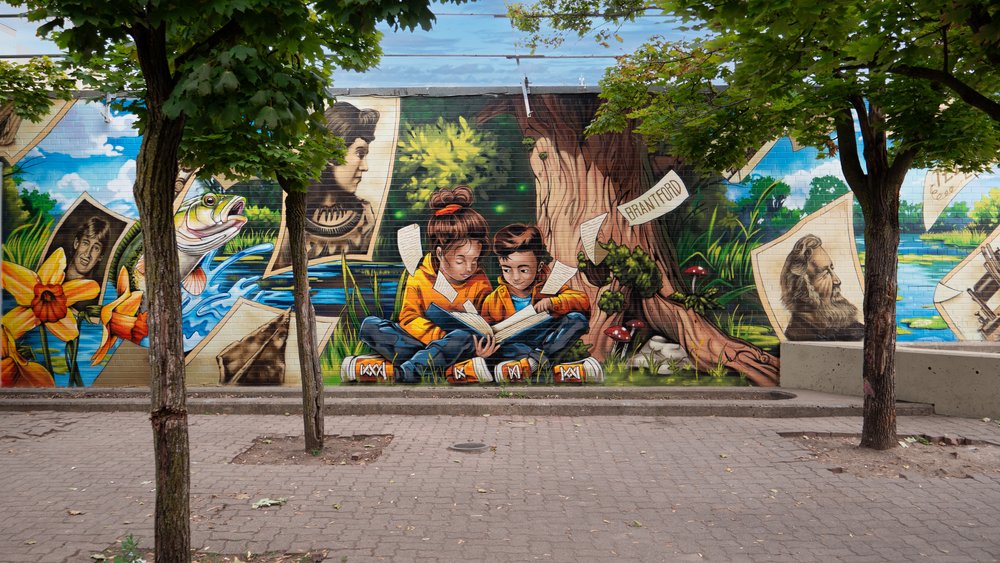
As the children read, pages from their book swirl around the mural, with pages showing key figures, moments, and landmarks from Brantford’s history. It symbolizes how “reading and education can transport us to other places, and teaches us about our history as well,” Wiradharma said.
Some recognizable figures include Lawrence Harris, Wayne Gretzky, E. Pauline Johnson, Phil Hartman, Alexander Graham Bell, Walter Gretzky, and Joseph Brant.
He intentionally didn’t add names or labels to any of the figures in the mural.
“I really wanted to play with the themes of reading and education,” said Wiradharma. He wants the mural to inspire people to seek out more information themselves, for example, by stepping into the library.
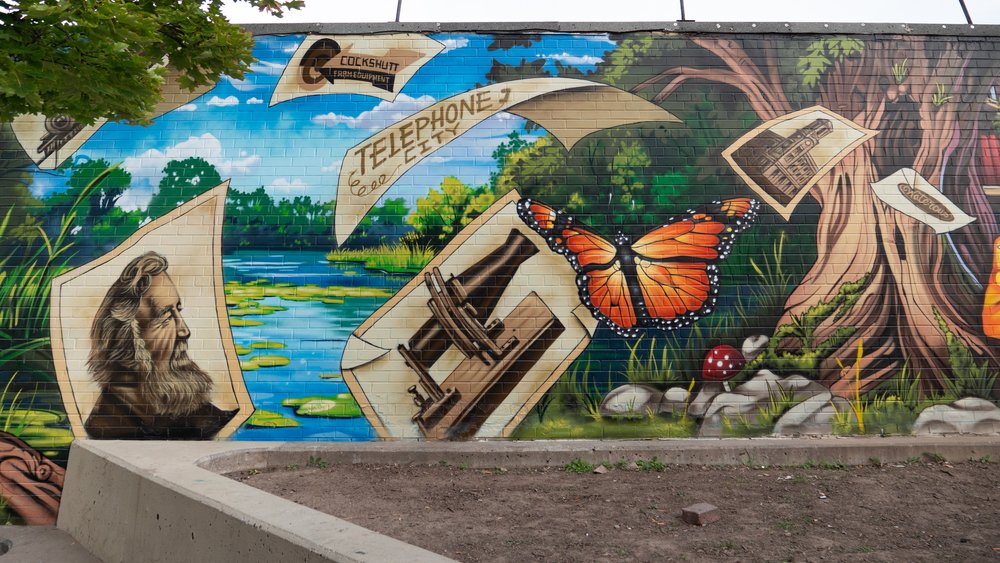
The monarch butterfly, which appears on the right-hand side of the mural, is a recurring motif in some of Wiradharma’s work. The monarch butterfly also appears in murals he’s created in St. Thomas, Bolton, Collingwood, and Toronto.
On the far right of the mural, the scene transitions to an indoor scene of a library, with bookshelves and picture frames that hold nondescript art, suggestive of more art and stories to come from the community.
After the outdoor mural viewing, audience members stepped into the library for a presentation from Wiradharma about his history as an artist and the process for creating The Pages of the Grand River.
Wiradharma, who also goes by the artist name Blazeworks, began his creative path with drawing and graffiti.
“I started off as pretty much just a rebellious teenager,” he said. “I didn’t really realize at the time, but all the time I spent wandering around… I was actually developing a skill with a spray can, which is a very nice skill to have.”
“Graffiti sort of was an outlet for me to express myself creatively,” he said. “It actually ended up being really, really positive in my life.”
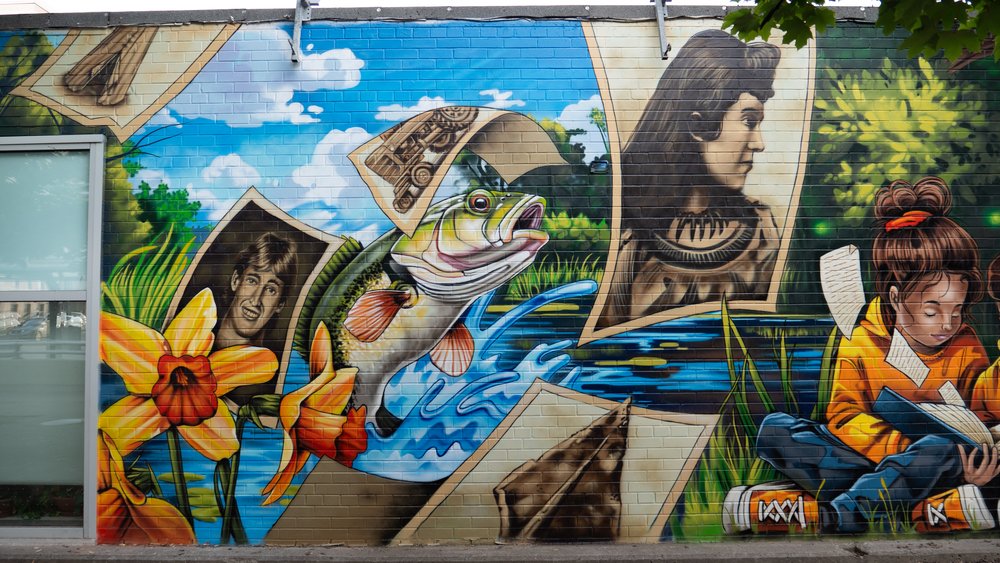
He pursued a degree in Illustration at OCAD University in Toronto, and started taking on commissioned mural work while still in university. Since then, he’s found his niche painting murals in small- to medium-sized communities, working primarily and usually exclusively with spray paint.
He’s completed murals across Ontario, and participated in numerous mural and graffiti festivals around the world. He was selected to complete the library mural from approximately 100 applicants.
At the talk on Thursday night, Wiradharma explained his process for doing a mural, from conception, to extensive research, to priming and using a ‘doodle grid’ on the wall before painting.
When it comes to research, Wiradharma said, “I can’t emphasize how important that is.”
“That is how my audience, or the audience of any artwork, is going to connect to the mural. So if they don’t connect to it, then you haven’t done your research accordingly,” he said.
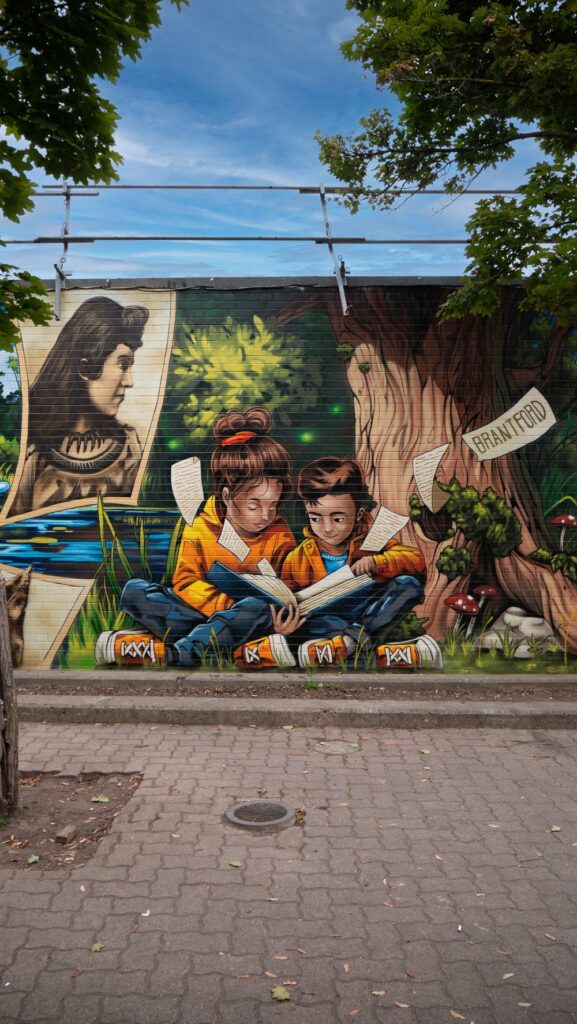
Audience members at Thursday’s event told Wiradharma that they thought he’d done an excellent job capturing the history and spirit of Brantford, which he was happy to hear.
“I’m glad the research I did came across,” he said. “When I was looking at Brantford history, there’s just so much stuff, and it’s hard to sort of decide what are the most important things that you want to put into anything. So I’m glad it was well representative of the community.”
